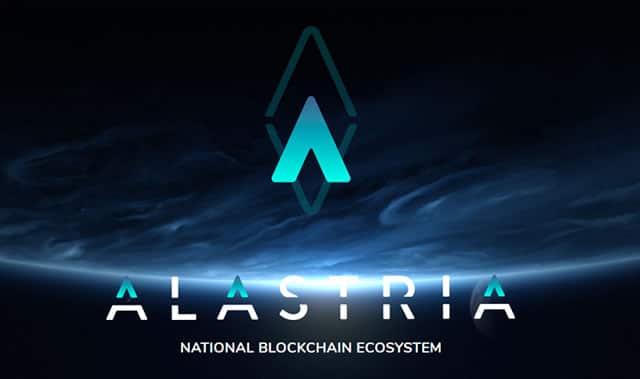Spain’s multi-sector Alastria consortium brings together banks, telecom providers, energy companies, universities, smart city organizations, developers and more for the world’s first regulated national network based on blockchain with an initial focus on digital identity.
It seems as if there is a new blockchain initiative virtually every day as we approach the end of 2018. On our blockchain page we looked at some initiatives across industries and use cases with some data indicating when, where and how blockchain technology is used and will be used.
Since the Summer of 2017 we had announcement after announcement: new initiatives in the field of blockchain and IoT, new initiatives in blockchain and insurance and on October 16th the announcement of IBM’s universal blockchain payment solution for cross-border payments.
Barely one day later all eyes in blockchain land look at Spain where a consortium is launched to develop the blockchain ecosystem across several industries. Meet the Alastria consortium.

Alastria: beyond existing blockchain initiatives in Spain
Spain already had its blockchain initiatives of course. End May 2017 Cecabank and Grant Thornton launched Spain’s first Blockchain Banking Consortium, aiming to lay the foundations for the usage of blockchain in the financial industry, more specifically banking.
One of the first applications on the agenda was a tool to better prevent money laundering processes with secure digital identification of customers using a blockchain-based ‘Know Your Customer Recognition System’.
The Alastria consortium, however, goes a few steps further. The presentation of the ‘first Blockchain multi-sector Consortium’ in Spain was announced to take place on October 2017 on the Valencia Stock Exchange in Valencia and in its locations in cities Madrid, Madrid, Barcelona, Bilbao and Malaga.
On the agenda of the launch of the Alastria network, on top of the launch: topics such as digital identity (as in the Cecabank and Grant Thornton Blockchain Banking Consortium indeed). Even if you don’t understand Spanish the tweet says it all.
Stakeholders in the Alastria national blockchain ecosystem
At the occasion of the launch the Alastria consortium sent out a press release in which it calls Alastria ‘the world’s first national multi-sector network using blockchain technology, which aims to enable and accelerate the digital transformation of the various industrial or business sectors’ with a focus on the benefits of secure and verified information that distributed ledger technology offers to all participants.
So, various industrial and business sectors and that means various partners in this launch stage (and, undoubtedly many more to come). The question is of course what sectors we are talking about and what the plans are.
The Alastria consortium brings together some of Spain’s major banking, energy and telecommunications companies. But other sectors are present as well and are invited to join “the world’s first regulated national network based on blockchain”, which goes by the name of Red Alastria.
To enable Red Alastria, the Alastria Consortium is a non-profit but, as said, regulated national effort that is not just open to large companies but also to small firms, start-ups and developers. In other words: a true ecosystem of various stakeholders.
Grant Thornton is a member of the Alastria Consortium as well and even has a seat in the executive board, along with executives from leading Spanish companies such as Repsol, BBVA, Gas Natural Fenosa, Banco Santander and Banco Sabadell, to name a few. In the list of roundabout 70 companies and associations we further see, among others, Accenture, CaixaBank, Deloitte, Fujitsu, Kutxabank, MásMóvil, Orange, SAP, Sopra steria, Telefónica, various universities, a few blockchain groups and specialists, smart city initiatives and so forth, indeed a cross-industry group (and this is just a part of the list).

Julio Faura, president of Alastria runs blockchain R&D at Banco Santander and says “it is not easy for so many important companies to decide to bet a project together from the very beginning. That’s the best proof of the incredible potential that this technology and the consortium have”.
Of course some of the partners are blockchain technology leaders. Interesting though is the absence – for now – of Microsoft and IBM. The reason why that’s interesting: as mentioned on our blockchain and distributed ledger technology (DLT) page the top 3 of the companies with the strongest credentials regarding blockchain technology consists of IBM, Microsoft and then Accenture, at least according to a September 2017 Juniper Research survey.
Initial focus on digital identity: ID Alastria, mobile customer onboarding and the GDPR
Among the founders of the Alastria consortium are also professionals who will ensure the security and veracity of information through the identification of natural and legal persons. Think notaries and lawyers indeed. It again emphasizes the main initial focus of Alastria on digital identity or digital ID, under the name ID Alastria.
Some Spanish banks are frontrunners in the space of mobile banking. There have been ample efforts to solve the identity issue in mobile customer onboarding in banks. With ID Alastria this issue could be solved (now it’s done with paper work, document capture, facial recognition, video conferencing and so forth). You see how true mobile onboarding in banks (and in other industries of course) becomes a possibility and Spain is certainly one of the countries where it is a hot topic. Obviously that’s not the only possibility for ID Alastria. The digital ID also enables citizens to control their personal data in a transparent way in accordance with the rules of the EU GDPR.

Alex Puig, among others CEO of the Digital Currency Summit, Founder of Fintech Barcelona and much more, is CEO of the executive board of Alastria (formerly known as RedLyra).
Puig: “With blockchain the Internet is being reinvented so that we can share and do business in a verified and secure way, but it is necessary to have a standard that allows all industries and the developer community to work with the same base”.
The Alastria network will offer a shared platform on which the participants, mainly large firms, can create digital representations of the assets with which they work in their usual economic activity, in other words tokenization.
With the tokens, the PR says, the development of new/innovative products and services is enabled and current processes can be developed faster, safer and more efficiently. Digital transformation, collaboration and innovation are keywords here.
You can learn more about Alastria on its website (Spanish and some English) and follow the newly launched Twitter account (Spanish).
The image with the logo of Alastria at the top of this page is property of Alastria. All images are courtesy and property of their mentioned owners.

